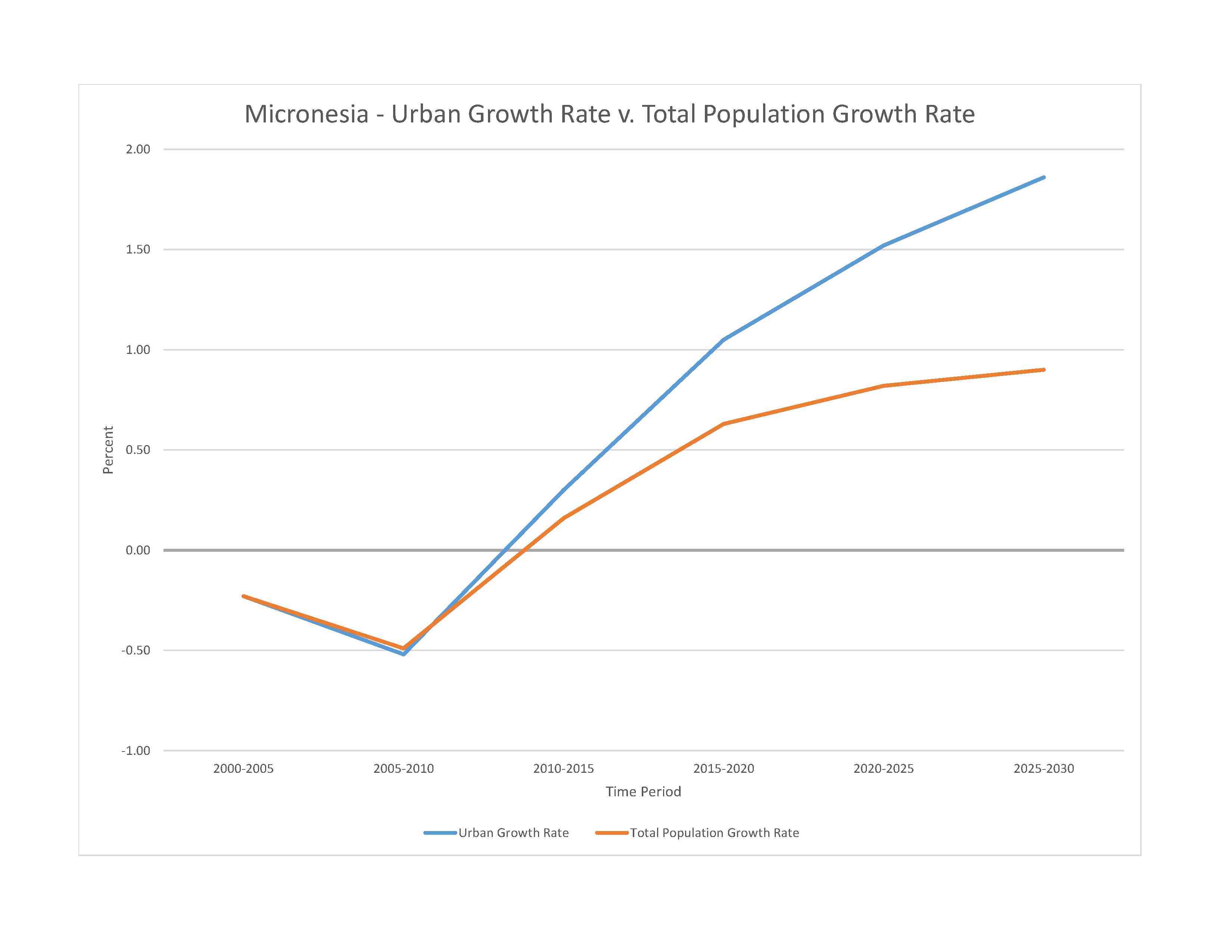
100,319 (2023 est.)
noun: Micronesian(s)
adjective: Micronesian; Chuukese, Kosraen(s), Pohnpeian(s), Yapese
Chuukese/Mortlockese 49.3%, Pohnpeian 29.8%, Kosraean 6.3%, Yapese 5.7%, Yap outer islanders 5.1%, Polynesian 1.6%, Asian 1.4%, other 0.8% (2010 est.)
English (official and common language), Chuukese, Kosrean, Pohnpeian, Yapese, Ulithian, Woleaian, Nukuoro, Kapingamarangi
Roman Catholic 54.7%, Protestant 41.1% (includes Congregational 38.5%, Baptist 1.1%, Seventh Day Adventist 0.8%, Assembly of God 0.7%), Church of Jesus Christ 1.5%, other 1.9%, none 0.7%, unspecified 0.1% (2010 est.)
0-14 years: 27.41% (male 13,968/female 13,527)
15-64 years: 67.13% (male 32,721/female 34,627)
65 years and over: 5.46% (2023 est.) (male 2,433/female 3,043)
total dependency ratio: 57.7
youth dependency ratio: 48.4
elderly dependency ratio: 9.3
potential support ratio: 10.8 (2021 est.)
total: 27.8 years (2023 est.)
male: 26.9 years
female: 28.6 years
-0.7% (2023 est.)
18.1 births/1,000 population (2023 est.)
4.2 deaths/1,000 population (2023 est.)
-20.9 migrant(s)/1,000 population (2023 est.)
the majority of the populaton lives in the coastal areas of the high islands; the mountainous interior is largely uninhabited; less than half of the population lives in urban areas
urban population: 23.4% of total population (2023)
rate of urbanization: 1.52% annual rate of change (2020-25 est.)

7,000 PALIKIR (capital) (2018)
at birth: 1.05 male(s)/female
0-14 years: 1.03 male(s)/female
15-64 years: 0.94 male(s)/female
65 years and over: 0.8 male(s)/female
total population: 0.96 male(s)/female (2023 est.)
74 deaths/100,000 live births (2020 est.)
total: 21.4 deaths/1,000 live births (2023 est.)
male: 24.4 deaths/1,000 live births
female: 18.2 deaths/1,000 live births
total population: 74.7 years (2023 est.)
male: 72.6 years
female: 76.9 years
2.22 children born/woman (2023 est.)
1.08 (2023 est.)
N/A
improved: total: 78.6% of population
unimproved: total: 21.4% of population (2017 est.)
11.6% of GDP (2020)
(2020)
3.2 beds/1,000 population
improved: urban: N/A
rural: N/A
total: 88.3% of population
unimproved: urban: N/A
rural: N/A
total: 11.7% of population (2017 est.)
45.8% (2016)
total: 1.59 liters of pure alcohol (2019 est.)
beer: 0.92 liters of pure alcohol (2019 est.)
wine: 0.13 liters of pure alcohol (2019 est.)
spirits: 0.52 liters of pure alcohol (2019 est.)
other alcohols: 0.01 liters of pure alcohol (2019 est.)
N/A
51.7% (2023 est.)
9.7% of GDP (2018 est.)
total population: NA
male: NA
female: NA
NOTE: The information regarding Micronesia Federated States of on this page is re-published from the 2024 World Fact Book of the United States Central Intelligence Agency and other sources. No claims are made regarding the accuracy of Micronesia Federated States of 2024 information contained here. All suggestions for corrections of any errors about Micronesia Federated States of 2024 should be addressed to the CIA or the source cited on each page.
This page was last modified 04 May 24, Copyright © 2024 ITA all rights reserved.